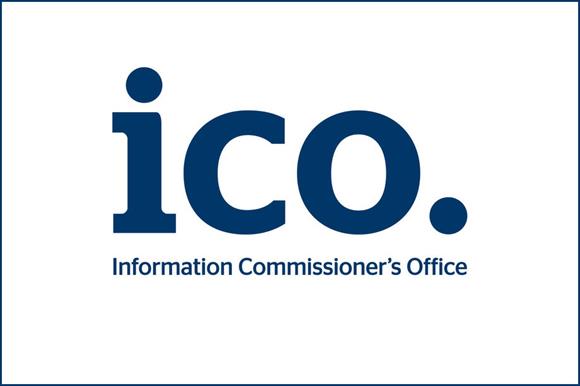England and Wales new SRA Accounting Rules
As we suspect you are aware, new SRA Accounting Rules will be effective from 25th November 2019. These come with some significant changes to the current rules and with the added responsibility of understanding what the rules mean to you as a firm.
We have prepared guidance notes and pro forma policy documents which can be used or tweaked for your own firm. We believe these will be extremely useful for all of our current clients and indeed non clients as they will enable compliance with these new regulations, and provide advice on the impact they may have on your current procedures.
These documents are available at a one-off charge of £200 plus VAT for all existing clients of The Cashroom, and £300 plus VAT for all non Cashroom clients. For more information please contact chloe.mcginn@thecashroom.co.uk.

 Do you have all your eggs in one basket?
Do you have all your eggs in one basket? Getting the best from a pension
Getting the best from a pension Commissioner’s Office (
Commissioner’s Office ( Perhaps some sound advice would be to pause for breath the next time a client asks your professional view on something outside your area of expertise. Is there a colleague who may be better placed to advise? Is there another friendly firm who would look after your client for this particular matter, but not poach them for future work? Perhaps you are part of a network such as the
Perhaps some sound advice would be to pause for breath the next time a client asks your professional view on something outside your area of expertise. Is there a colleague who may be better placed to advise? Is there another friendly firm who would look after your client for this particular matter, but not poach them for future work? Perhaps you are part of a network such as the  knowledge, it could potentially be dangerous for a number of reasons. For example, are you up to speed with the latest cyber fraud tactics? Are you fully aware of what your employees’ rights and responsibilities are from an HR perspective? Or is trying to do your own cashiering going to land you in hot water at a compliance inspection/audit. With all of these examples, you may ‘think’ you know what you are doing, or that you can get by, but do you “know’ what you are doing? If not, the additional time you’re spending on them, not to mention the stress, probably more than justifies delegating to somebody better placed to deal with them, or outsourcing those responsibilities to experienced experts or third-party providers. That way, you can sleep at night knowing things are being done properly, that you are covered from an insurance point of you, and just as importantly, that you can focus on what you do best, whether that be generating new business for your firm, or doing fee earning work for clients. I hope there is some food for thought here, and some take away points to discuss at your next Partners meeting.
knowledge, it could potentially be dangerous for a number of reasons. For example, are you up to speed with the latest cyber fraud tactics? Are you fully aware of what your employees’ rights and responsibilities are from an HR perspective? Or is trying to do your own cashiering going to land you in hot water at a compliance inspection/audit. With all of these examples, you may ‘think’ you know what you are doing, or that you can get by, but do you “know’ what you are doing? If not, the additional time you’re spending on them, not to mention the stress, probably more than justifies delegating to somebody better placed to deal with them, or outsourcing those responsibilities to experienced experts or third-party providers. That way, you can sleep at night knowing things are being done properly, that you are covered from an insurance point of you, and just as importantly, that you can focus on what you do best, whether that be generating new business for your firm, or doing fee earning work for clients. I hope there is some food for thought here, and some take away points to discuss at your next Partners meeting. LawCare
LawCare We have witnessed significant growth and change in the legal profession over the last two decades, as organisations started to embrace the mental health agenda and recognised the need to look after those who need support with mental health issues. Momentum around mental health and wellbeing in the legal community has been particularly growing in the last few years, with many firms now rolling out wellbeing initiatives and providing training to staff in this area. Firms need to do their best to create a healthy and happy place to work, not just because it is the right thing to do but because there is a strong proven business case for it.
We have witnessed significant growth and change in the legal profession over the last two decades, as organisations started to embrace the mental health agenda and recognised the need to look after those who need support with mental health issues. Momentum around mental health and wellbeing in the legal community has been particularly growing in the last few years, with many firms now rolling out wellbeing initiatives and providing training to staff in this area. Firms need to do their best to create a healthy and happy place to work, not just because it is the right thing to do but because there is a strong proven business case for it.
 After all, change can bring risk, so you need to be confident that the strategy you implement will be worth it. Speaking to third party experts about outsourcing your account services should reassure you that the impact will be beneficial on your business moving forward.
After all, change can bring risk, so you need to be confident that the strategy you implement will be worth it. Speaking to third party experts about outsourcing your account services should reassure you that the impact will be beneficial on your business moving forward. 3. Some employers are fortunate to have deep pockets, or access to investment cash for wellbeing, allowing them to invest in a gym in the office, subsidise gym memberships, or have personal trainers or dieticians come in to the office regularly. However, you really don’t need to go to that extent to encourage your employees to spend a bit more time moving and exercising regularly during their working day, thereby improving their wellness. How about encouraging walking meetings: a brisk 10 – 15 minutes round the block to chat through something you would normally do while sitting slumped in a meeting room to do. You will likely arrive back in the office refreshed, or at least a little more awake, and ready for the next task. Top tip – an initiative like this requires a top-down adoption, i.e. the leaders and managers of the business need to embrace it and start doing it regularly, to help instil into more junior staff that it is acceptable, and in fact is to be encouraged!
3. Some employers are fortunate to have deep pockets, or access to investment cash for wellbeing, allowing them to invest in a gym in the office, subsidise gym memberships, or have personal trainers or dieticians come in to the office regularly. However, you really don’t need to go to that extent to encourage your employees to spend a bit more time moving and exercising regularly during their working day, thereby improving their wellness. How about encouraging walking meetings: a brisk 10 – 15 minutes round the block to chat through something you would normally do while sitting slumped in a meeting room to do. You will likely arrive back in the office refreshed, or at least a little more awake, and ready for the next task. Top tip – an initiative like this requires a top-down adoption, i.e. the leaders and managers of the business need to embrace it and start doing it regularly, to help instil into more junior staff that it is acceptable, and in fact is to be encouraged! 5. Finally, make seasonal events (e.g Easter, Halloween, Christmas) fun! Think about giving out Advent Calendars or Easter Eggs to all staff – not a huge investment, but definitely a morale booster – or having a dress down/up(!) day for Halloween. This can encourage interaction amongst employees, lift spirits in the office, and at the same time be used to generate some money for a charity of your choice.
5. Finally, make seasonal events (e.g Easter, Halloween, Christmas) fun! Think about giving out Advent Calendars or Easter Eggs to all staff – not a huge investment, but definitely a morale booster – or having a dress down/up(!) day for Halloween. This can encourage interaction amongst employees, lift spirits in the office, and at the same time be used to generate some money for a charity of your choice. There are catastrophic implications of not defending against data breaches and cybercrime. But, before you can put stringent security processes in place, you have to understand the risks.
There are catastrophic implications of not defending against data breaches and cybercrime. But, before you can put stringent security processes in place, you have to understand the risks. Property hijackings (where criminals pose as owners) are escalating. In many cases, criminals will rent a property and steal the landlord’s post. They then use this to pose as the real owner and sell the house to cash buyers.
Property hijackings (where criminals pose as owners) are escalating. In many cases, criminals will rent a property and steal the landlord’s post. They then use this to pose as the real owner and sell the house to cash buyers. Malware attacks – where malicious software is installed on a user’s machine – can be extremely damaging; to your day-to-day operations, your reputation, and your bottom line. Ransomware attacks – an aggressive form of malware which prevents access to systems unless a payment is made – can be even worse.
Malware attacks – where malicious software is installed on a user’s machine – can be extremely damaging; to your day-to-day operations, your reputation, and your bottom line. Ransomware attacks – an aggressive form of malware which prevents access to systems unless a payment is made – can be even worse. Information security certification (e.g. ISO 27001 or Cyber Essentials) helps to protect client and employee data. This won’t just keep sensitive data secure, it will also demonstrate to clients (and the ICO) that you take your responsibilities seriously.
Information security certification (e.g. ISO 27001 or Cyber Essentials) helps to protect client and employee data. This won’t just keep sensitive data secure, it will also demonstrate to clients (and the ICO) that you take your responsibilities seriously. At
At  Outsourcing to The Cashroom has been painless. So easy to deal with accommodating everything that we need to do, when we need to do it, whilst keeping us on the right side of the vast array of regulations.
Outsourcing to The Cashroom has been painless. So easy to deal with accommodating everything that we need to do, when we need to do it, whilst keeping us on the right side of the vast array of regulations.  At the same time, the total cost of employing in-house cashiering personnel is expensive. Because, in addition to wages, you also have to take the costs of recruitment, induction, training, mentoring, sick pay, maternity cover, holiday cover, pension contributions, and National Insurance into consideration.
At the same time, the total cost of employing in-house cashiering personnel is expensive. Because, in addition to wages, you also have to take the costs of recruitment, induction, training, mentoring, sick pay, maternity cover, holiday cover, pension contributions, and National Insurance into consideration. The Cashroom offer an invaluable service for any solicitor’s firm. Their approach is efficient, professional and responsive. They have allowed us to deal with rapid growth by taking on all accounts functionality.”
The Cashroom offer an invaluable service for any solicitor’s firm. Their approach is efficient, professional and responsive. They have allowed us to deal with rapid growth by taking on all accounts functionality.” The Cashroom has definitely been a good business move, not only because of efficiency but also in relation to compliance which can be daunting at times.”
The Cashroom has definitely been a good business move, not only because of efficiency but also in relation to compliance which can be daunting at times.” We operate a business which requires efficiency and certainty of service. The Cashroom has augmented our own internal accounts team, taking control of key elements and working closely to provide a seamless service to us.
We operate a business which requires efficiency and certainty of service. The Cashroom has augmented our own internal accounts team, taking control of key elements and working closely to provide a seamless service to us.  How quickly can you get up and running?
How quickly can you get up and running? We have been using The Cashroom’s services for three years now. We brought them in to provide a secure, efficient, compliant cashiering function to support our growing business with their flexible resource model.
We have been using The Cashroom’s services for three years now. We brought them in to provide a secure, efficient, compliant cashiering function to support our growing business with their flexible resource model.  In the Cyber Security Breaches Survey 2019, conducted by the Department for Digital, Culture, Media and Sports (DCMS), 32% of UK businesses had reported a cyber security breach in the last 12 months. Over a third admitting this breach led to a loss of data or assets.
In the Cyber Security Breaches Survey 2019, conducted by the Department for Digital, Culture, Media and Sports (DCMS), 32% of UK businesses had reported a cyber security breach in the last 12 months. Over a third admitting this breach led to a loss of data or assets. ‘Fraud the Facts 2019’ report highlighted that email (malicious redirection) fraud has become a lucrative business. Fraudsters use emails to convince a home seller or law firm to change their bank details before a payment is made resulting in £123million lost in 2018.
‘Fraud the Facts 2019’ report highlighted that email (malicious redirection) fraud has become a lucrative business. Fraudsters use emails to convince a home seller or law firm to change their bank details before a payment is made resulting in £123million lost in 2018. We do not have a ‘system’ or software that we use, we simply access the accounts part of your existing Practice Management System remotely. So, all you need is a legal practice management system of some sort, and a means of us accessing it remotely. We also have a secure client portal which all of our clients are on, creating a secure environment for both The Cashroom and client to communicate without the cyber risks of email. This also avoids having to protect sensitive data via email. Training can also be given to ensure you are comfortable when using the portal.
We do not have a ‘system’ or software that we use, we simply access the accounts part of your existing Practice Management System remotely. So, all you need is a legal practice management system of some sort, and a means of us accessing it remotely. We also have a secure client portal which all of our clients are on, creating a secure environment for both The Cashroom and client to communicate without the cyber risks of email. This also avoids having to protect sensitive data via email. Training can also be given to ensure you are comfortable when using the portal. We allocate each client to a cashiering team, headed up by a very experienced senior cashier, essentially your ‘Head Cashier’. They will have a small team of people who will work with your firm, in order that holidays, sickness cover etc, are not a problem for you. You will get to know the two or three people working with your firm very quickly, and build a relationship with them. You can pick up the phone or send a query via our secure client portal to these selected people at any point and be ensured that someone will always be about to help.
We allocate each client to a cashiering team, headed up by a very experienced senior cashier, essentially your ‘Head Cashier’. They will have a small team of people who will work with your firm, in order that holidays, sickness cover etc, are not a problem for you. You will get to know the two or three people working with your firm very quickly, and build a relationship with them. You can pick up the phone or send a query via our secure client portal to these selected people at any point and be ensured that someone will always be about to help. change makes the difference between whether you sink or swim. One way that savvy firms are choosing to adapt is by outsourcing essential business tasks, like legal cashiering.
change makes the difference between whether you sink or swim. One way that savvy firms are choosing to adapt is by outsourcing essential business tasks, like legal cashiering. Maximise your resource: Benefit from a cost based on the actual activity and skill level your firm requires, rather than having to fund sufficient senior cashiering resource to deal with complex, high-risk elements, while using that same resource to carry out the more mundane, junior tasks.
Maximise your resource: Benefit from a cost based on the actual activity and skill level your firm requires, rather than having to fund sufficient senior cashiering resource to deal with complex, high-risk elements, while using that same resource to carry out the more mundane, junior tasks.  addressing. According to research 66% of solicitors feel high levels of stress in their jobs, and each year in the UK, 70 million workdays are lost to mental illness.
addressing. According to research 66% of solicitors feel high levels of stress in their jobs, and each year in the UK, 70 million workdays are lost to mental illness. Almost half of all the calls received (48%) were made by legal professionals with less than five years’ qualified experience. The Junior Lawyers Division’s resilience and well-being survey also found a huge number of younger legal professionals struggling with work related mental health issues. This research clearly shows that the well-being of people in the legal sector spans all knowledge ranges and doesn’t discriminate between the newly qualified and the more experienced lawyer.
Almost half of all the calls received (48%) were made by legal professionals with less than five years’ qualified experience. The Junior Lawyers Division’s resilience and well-being survey also found a huge number of younger legal professionals struggling with work related mental health issues. This research clearly shows that the well-being of people in the legal sector spans all knowledge ranges and doesn’t discriminate between the newly qualified and the more experienced lawyer. 40% reduction in new buyer enquiries. Although the net balance figures for March, April and May were slightly more buoyant with only a -26% net balance of new buyer enquiries. It’s clear that buyers are reluctant to declare an interest in property until October 31st when they know what the country is doing next.
40% reduction in new buyer enquiries. Although the net balance figures for March, April and May were slightly more buoyant with only a -26% net balance of new buyer enquiries. It’s clear that buyers are reluctant to declare an interest in property until October 31st when they know what the country is doing next. There is light at the end of the Brexit tunnel, and we’re not talking about deal or no deal. Reports have suggested that transactions are slowly starting to pick up. The number of approved sales per branch were eight in April, an increase on the seven per branch the previous month.
There is light at the end of the Brexit tunnel, and we’re not talking about deal or no deal. Reports have suggested that transactions are slowly starting to pick up. The number of approved sales per branch were eight in April, an increase on the seven per branch the previous month.
 I recently ran Manchester marathon. I wasn’t fast, and I wasn’t last – 3hr 31 min to be precise – but sometimes the time is irrelevant . I ran a marathon in 2014 (Edinburgh) and have run the distance a few more times at the end of Ironman triathlons (pre-– children!), but this time around was a little different. I haven’t slept much in the last few months (see earlier reference to children!), and had a busy few months at work and at home, so training was ‘minimalistic’ to say the least. However, aside from a ‘moment’ a few weeks before race day, I knew that I could get round alright. It wouldn’t be a PB, but I would complete the distance. And that’s when I realised that something had changed in the last few years – my perspective. Being able to run a marathon on minimal training was now my ‘new normal’, and I think there is a lesson in that: what you perceive as your ‘normal’ can vastly change over time, and your limits are almost certainly not where you think they are.
I recently ran Manchester marathon. I wasn’t fast, and I wasn’t last – 3hr 31 min to be precise – but sometimes the time is irrelevant . I ran a marathon in 2014 (Edinburgh) and have run the distance a few more times at the end of Ironman triathlons (pre-– children!), but this time around was a little different. I haven’t slept much in the last few months (see earlier reference to children!), and had a busy few months at work and at home, so training was ‘minimalistic’ to say the least. However, aside from a ‘moment’ a few weeks before race day, I knew that I could get round alright. It wouldn’t be a PB, but I would complete the distance. And that’s when I realised that something had changed in the last few years – my perspective. Being able to run a marathon on minimal training was now my ‘new normal’, and I think there is a lesson in that: what you perceive as your ‘normal’ can vastly change over time, and your limits are almost certainly not where you think they are. You don’t need to go in all guns blazing, signing up to climb Mount Everest next week, but decide what it is you want to achieve, and start taking small, incremental but consistent steps towards it, building momentum as you go. Those daily, weekly or monthly steps towards the goal, over time, are what make the difference. Once you have that consistent practice, what once seemed like a pie in the sky idea will come clearly into view, and be more than achievable. And once achieved, your perspective will have changed, in a positive way, forever. Even if your goal was to start a new business, and it wasn’t ultimately successful, going through the process, and making that your ‘new normal’, will change your outlook, and help you believe that it is not beyond your capabilities should a better opportunity arise in the future.
You don’t need to go in all guns blazing, signing up to climb Mount Everest next week, but decide what it is you want to achieve, and start taking small, incremental but consistent steps towards it, building momentum as you go. Those daily, weekly or monthly steps towards the goal, over time, are what make the difference. Once you have that consistent practice, what once seemed like a pie in the sky idea will come clearly into view, and be more than achievable. And once achieved, your perspective will have changed, in a positive way, forever. Even if your goal was to start a new business, and it wasn’t ultimately successful, going through the process, and making that your ‘new normal’, will change your outlook, and help you believe that it is not beyond your capabilities should a better opportunity arise in the future. So, while I would encourage you all to run a marathon – I truly believe anyone can do it with the right preparation and dedication to training – your goal may be something quite different to that. The same principles apply though: identify what it is you want to achieve, commit to it, then train for it in a deliberate and consistent way. Very philosophical I know, but life is short, so set about doing the things you have always wanted to do. And remember, nothing changes if nothing changes.
So, while I would encourage you all to run a marathon – I truly believe anyone can do it with the right preparation and dedication to training – your goal may be something quite different to that. The same principles apply though: identify what it is you want to achieve, commit to it, then train for it in a deliberate and consistent way. Very philosophical I know, but life is short, so set about doing the things you have always wanted to do. And remember, nothing changes if nothing changes. Under the new rules the concept of unpaid or incurred disbursements has been removed, meaning disbursements are only to be considered as disbursements when paid.
Under the new rules the concept of unpaid or incurred disbursements has been removed, meaning disbursements are only to be considered as disbursements when paid. extremely busy and sometime stressful work we all have commitments and strains to deal with in our personal life too. It is vital for all of us to take a step back when needed and deal with our own health. And even if we do not have any existing mental health problems, ensure that we are all looking after our mental health as we do our physical health.
extremely busy and sometime stressful work we all have commitments and strains to deal with in our personal life too. It is vital for all of us to take a step back when needed and deal with our own health. And even if we do not have any existing mental health problems, ensure that we are all looking after our mental health as we do our physical health. At The Cashroom we have a confidential phone line available to staff which goes to trained mental health professionals that they can call 24 hours a day (you wouldn’t let yourself or even a colleague treat your cancer would you?).The Mindful Employer creates a safe place for staff to call and also has a lot of useful information on its website for staff. We also encourage all staff to look after their mental wellbeing by allowing time during the working day for staff to complete a daily mile outside in the fresh air and we have fresh fruit delivered weekly. We also have our mental health charter displayed in the office for staff to see.
At The Cashroom we have a confidential phone line available to staff which goes to trained mental health professionals that they can call 24 hours a day (you wouldn’t let yourself or even a colleague treat your cancer would you?).The Mindful Employer creates a safe place for staff to call and also has a lot of useful information on its website for staff. We also encourage all staff to look after their mental wellbeing by allowing time during the working day for staff to complete a daily mile outside in the fresh air and we have fresh fruit delivered weekly. We also have our mental health charter displayed in the office for staff to see. I’m from the generation which used to do everything by landline and letter, so obviously I’ve experienced huge amounts of change over the last 30 years. The latest change within our business relates to our desire to remove as much as possible email communication from our toolkit. We have developed a secure client portal to communicate with our clients, this new technology is also a wonderful task management tool.
I’m from the generation which used to do everything by landline and letter, so obviously I’ve experienced huge amounts of change over the last 30 years. The latest change within our business relates to our desire to remove as much as possible email communication from our toolkit. We have developed a secure client portal to communicate with our clients, this new technology is also a wonderful task management tool. get back fully operational.
get back fully operational. It is, to some extent, the benefit of our clients not having to worry about holiday or sickness cover again, or the time drain of recruiting, training and managing members of staff, or being able to scale up or down without worrying about the workload implications for employees. But it is more than that. We have taken on the cashroom or ‘finance’ function of 170 law firms, of all shapes and sizes, across the length and breadth of the country. That has allowed us to review how those firms have previously done things, and pick and choose the best and most efficient processes, implementing them into our standard process from which all of our clients will benefit. That, I believe, is where some of the real added value comes – it couldn’t be obtained by recruiting in-house.
It is, to some extent, the benefit of our clients not having to worry about holiday or sickness cover again, or the time drain of recruiting, training and managing members of staff, or being able to scale up or down without worrying about the workload implications for employees. But it is more than that. We have taken on the cashroom or ‘finance’ function of 170 law firms, of all shapes and sizes, across the length and breadth of the country. That has allowed us to review how those firms have previously done things, and pick and choose the best and most efficient processes, implementing them into our standard process from which all of our clients will benefit. That, I believe, is where some of the real added value comes – it couldn’t be obtained by recruiting in-house. processes, without any break in that service at holiday/sickness/busy times, and mitigating their fraud risk. Have a think about your business, and where you really add value to your clients. Doing so is an interesting exercise in itself, and will allow you to strategically review your marketing activities. Let’s face it, no client wants to know you are a ‘long established firm, dating back to….’!! They want you to tell them what sets you apart from the firm across the road, and why they should place their business with you. In other words, what is your value add?
processes, without any break in that service at holiday/sickness/busy times, and mitigating their fraud risk. Have a think about your business, and where you really add value to your clients. Doing so is an interesting exercise in itself, and will allow you to strategically review your marketing activities. Let’s face it, no client wants to know you are a ‘long established firm, dating back to….’!! They want you to tell them what sets you apart from the firm across the road, and why they should place their business with you. In other words, what is your value add?